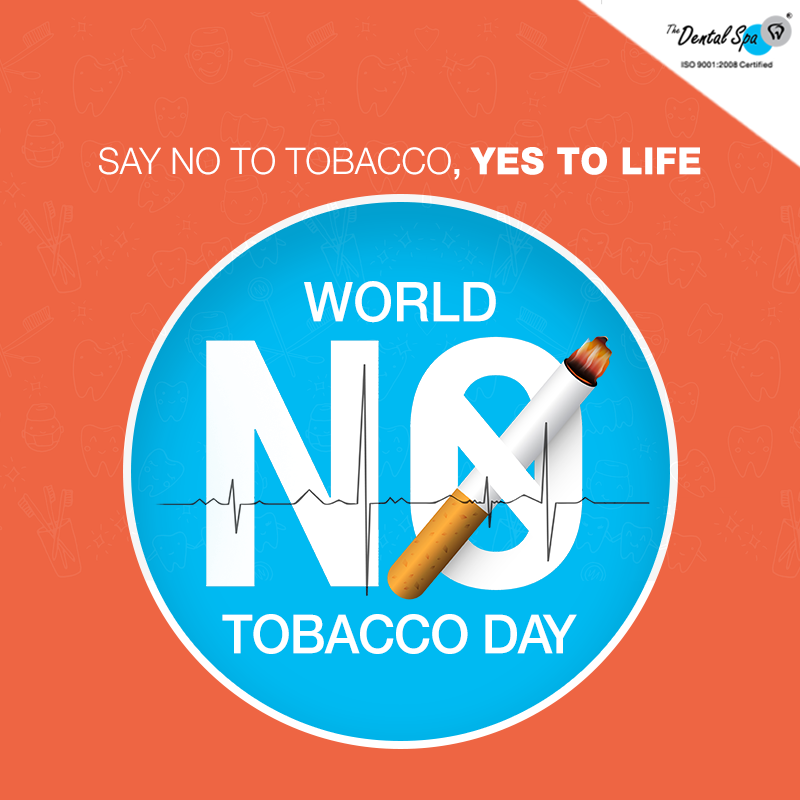Say No to Tobacco, Yes to your Life
The decision to quit smoking may be easy, but sticking with the decision is the hard part! Yes, it is hard but not impossible. Many of us are aware of the harmful effects smoking and other tobacco products have on our lungs and overall health. But you will be surprised to learn smoking can also cause major problems for your oral health. Besides staining teeth and causing bad breath, smoking increases the chances of developing various oral diseases.
Possible effects of Smoking and all Tobacco products on oral health include:
Tooth Discoloration:
Smoking stains teeth due to the nicotine and tar in tobacco. It can make your teeth yellow in a very short time and heavy smokers often complain that their teeth are almost brown after years of smoking.
Bad Breath:
Bad breath, medically called halitosis, can result from poor dental health habits and tobacco is one of the reasons for Bad breath. Smoking and chewing tobacco dries out your mouth and causes bad breath.
Chances of Developing Oral Cancer:
Use of tobacco increases the risk of oral cancer by exposing the mouth to these carcinogenic chemicals, either during inhalation while smoking or through direct contact while chewing tobacco products.
Gum Diseases:
Smoking and other tobacco products can lead to gum disease by affecting the attachment of bone and soft tissue to your teeth. And tobacco smokers typically do not have bleeding gums as they have a poor blood supply to the gums.
Dry mouth:
Smoking can slow down saliva production and can dry out the mouth and aggravate
problems like difficulty in chewing and swallowing and frequent ulcerations.
Loose teeth:
Smoking and chewing tobacco harm the supporting structures of your teeth like the gums, periodontal ligaments, and the underlying bone. This may ultimately cause your teeth to become
loose.
Quitting is difficult, and it will take time. To quit, you need a good plan, some alternatives and a whole lot of support from your family and friends. Here are few methods which will help you quit Tobacco.
● Trigger avoidance – Avoid any triggers that make you want to smoke. Maybe it’s drinking, eating certain foods or attending social events. Whatever the reason, ignore it until you feel you can handle it.
● Mark the calendar – Once you decide to quit, set a date and stick to it. Choose a date 2 to 4 weeks from today. Quitting can be hard, so map out a plan that works for you.
● Lean on your loved ones – Your family, friends, and doctor can provide support. If possible, find a friend or family member to quit with. They can encourage you to keep going, especially when you’re tempted to light up. For help, you can also join a support group or talk to a counselor.
● Use substitutes– Chew on sugar-free gum, nuts and seeds or use nicotine
patches/lozenges prescribed by your doctor to help you resist the urge to smoke.
● Indulge in a Sporting activity– Indulging in your favorite sports or running or jogging helps to release stress and calm you down, thus helping you to fight the urge to smoke.
If you experience these symptoms and continue to smoke, you may be at a greater risk and if you are thinking to quit smoking, then the World No Tobacco Day is the right time to break the chain and start living a healthy life. Visit The Dental Spa if you need more information on smoking and its effects on dental health.






